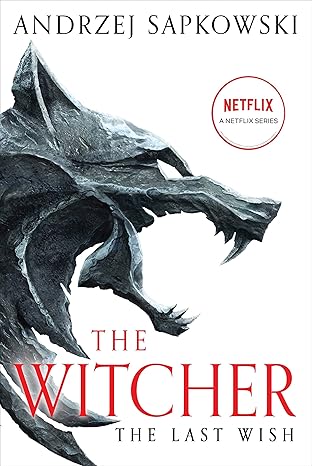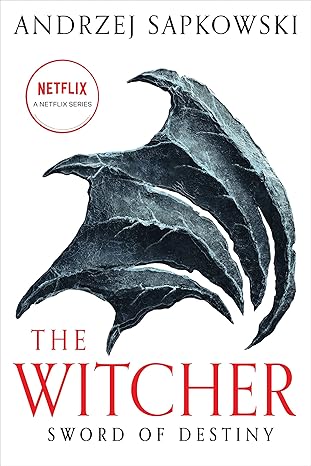
How to Read Andrzej Sapkowski's Books on Should I Read the Short Stories First
How to Read Andrzej Sapkowski's Books on Should I Read the Short Stories First
Estimated Reading Time: 10-12 minutes
Introduction
Andrzej Sapkowski, a Polish author born in 1948, is best known for his rich and imaginative contributions to the fantasy genre, particularly through his iconic series, The Witcher. His works, especially the short story collections The Last Wish and Sword of Destiny, delve into the complexities of morality, destiny, and the human condition, all while set against a backdrop of fantastical elements. This guide will explore whether you should read these short stories first, providing insights into their significance and how they contribute to the broader narrative of Sapkowski's universe.
Sapkowski's unique storytelling style, characterized by a blend of Slavic folklore, philosophical musings, and sharp wit, offers readers a profound exploration of themes that resonate beyond the realm of fantasy. The historical and cultural context of his work—rooted in the tumultuous history of Poland—adds layers of depth to his narratives, making them not only entertaining but also intellectually stimulating.
Why Andrzej Sapkowski's Perspective Matters
Sapkowski's approach to storytelling is distinctive due to his ability to weave complex moral dilemmas into engaging narratives. Unlike many fantasy authors who focus primarily on world-building, Sapkowski emphasizes character development and philosophical inquiry. His short stories serve as a microcosm of his larger themes, exploring the nature of good and evil, the consequences of choices, and the fluidity of fate.
His perspective is particularly important in today's literary landscape, where themes of identity, morality, and the human experience are ever-relevant. By examining the intricacies of his characters and their choices, readers gain insight into their own lives and the universal struggles we all face. Sapkowski's work stands apart from other fantasy writers by offering not just escapism, but also a mirror reflecting the complexities of human existence.
Overview of Recommended Books
The Last Wish
The Last Wish serves as the introduction to the world of Geralt of Rivia, a monster hunter navigating a morally ambiguous universe. This collection of interconnected short stories establishes the tone and themes that will resonate throughout Sapkowski's later works.
Main Themes and Arguments:
- Moral Ambiguity: The stories challenge the notion of clear-cut good and evil, presenting characters who often operate in shades of gray.
- Fate and Free Will: The concept of destiny plays a crucial role, particularly in Geralt's life, as he grapples with the implications of his choices.
- Humanity vs. Monstrosity: The stories explore what it means to be human, often contrasting Geralt's humanity with the literal monsters he hunts.
Historical Context and Significance: Published in 1993, The Last Wish emerged during a period of significant cultural change in Poland, reflecting a society grappling with its identity post-communism. The stories draw on Slavic folklore, enriching the narrative with cultural depth.
Key Insights:
- Complex Characters: Geralt is not just a monster hunter; he embodies the struggle between duty and personal ethics.
- Interconnected Narratives: The stories are intricately linked, providing a deeper understanding of Geralt's character and the world he inhabits.
- Philosophical Reflections: Sapkowski invites readers to ponder the nature of choice and consequence, making the stories relevant to contemporary discussions on morality.
Why Read This Book: The Last Wish is essential for understanding the foundational elements of Sapkowski's universe. Readers who appreciate character-driven narratives and philosophical inquiries will find this collection particularly rewarding.
Sword of Destiny
Following The Last Wish, Sword of Destiny continues to explore Geralt's journey, delving deeper into his relationships and the consequences of his choices. This collection further develops the themes introduced in the first book.
Main Themes and Arguments:
- Love and Sacrifice: The stories examine the complexities of love, particularly Geralt's relationship with Yennefer, and the sacrifices made in the name of love.
- The Nature of Destiny: The tension between fate and free will is further explored, particularly in how Geralt's choices shape his destiny.
- Cultural Identity: The stories reflect on the clash of cultures and the impact of war, drawing parallels to historical conflicts.
Historical Context and Significance: Published in 1992, Sword of Destiny reflects Sapkowski's continued engagement with the socio-political landscape of Poland, using fantasy as a lens to explore real-world issues.
Key Insights:
- Character Development: Geralt's relationships are complex and fraught with tension, showcasing his vulnerabilities.
- Thematic Depth: The exploration of love and sacrifice adds emotional weight to the narrative, inviting readers to reflect on their own relationships.
- Cultural Commentary: The stories serve as a critique of societal norms and the consequences of conflict, making them relevant to contemporary readers.
Why Read This Book: Sword of Destiny is crucial for understanding the evolution of Geralt's character and the deeper philosophical questions that underpin his journey. Readers seeking a richer emotional experience and a more profound exploration of destiny will benefit from this collection.
How These Books Complement Each Other
The Last Wish and Sword of Destiny are not standalone works but rather parts of a larger tapestry that Sapkowski weaves throughout his series. Together, they build upon each other, enhancing the reader's understanding of Geralt's character and the thematic explorations of morality, love, and destiny.
- Interconnected Themes: Both collections address the complexities of choice and consequence, with The Last Wish laying the groundwork for the emotional depth explored in Sword of Destiny.
- Character Progression: Readers witness Geralt's growth and the evolution of his relationships, particularly with Yennefer, providing a comprehensive view of his character arc.
- Philosophical Continuity: The philosophical inquiries present in both books create a cohesive narrative that encourages readers to reflect on their own lives and choices.
Who Would Benefit from Reading These Books
These collections are ideal for a diverse audience:
- Students and Academics: Those studying literature and philosophy will find rich material for analysis and discussion.
- General Readers: Fans of fantasy and those interested in character-driven narratives will appreciate the depth and complexity of Sapkowski's work.
- Professionals Seeking Wisdom: Individuals looking for insights into morality, love, and human nature will find valuable lessons within the stories.
- Personal Growth Seekers: Readers interested in self-improvement will benefit from the philosophical reflections embedded in the narratives.
Recommended Reading Order
- Start with: The Last Wish - This collection introduces the world of Geralt and establishes the key themes and characters.
- Continue with: Sword of Destiny - This book deepens the exploration of Geralt's relationships and the philosophical questions surrounding destiny and choice.
- Advanced reading: The Witcher Saga - After the short stories, readers can dive into the full-length novels for a more expansive narrative experience.
Tips for Getting the Most Out of Each Book:
- Take notes on character development and thematic elements as you read.
- Reflect on how the stories relate to contemporary issues and personal experiences.
- Engage with online discussions or book clubs to deepen your understanding of the texts.
Conclusion
Andrzej Sapkowski's contributions to the fantasy genre through The Last Wish and Sword of Destiny offer profound insights into the human condition, morality, and the complexities of choice. By exploring these short stories first, readers gain a foundational understanding of Geralt's world and the philosophical inquiries that permeate his journey.
I encourage you to delve into these works, as they not only provide entertainment but also invite you to reflect on your own life and choices. The timeless relevance of Sapkowski's ideas ensures that his stories will resonate with readers for generations to come.
Tags: #Andrzej Sapkowski #Should I Read the Short Stories First #Philosophy #ReadingGuide #ClassicLiterature #Wisdom
Featured Books

The Last Wish
by Andrzej Sapkowski
Published: 1993
A collection of short stories that introduce Geralt of Rivia and the world of The Witcher.

Sword of Destiny
by Andrzej Sapkowski
Published: 1992
More short stories that expand on Geralt’s relationships and the destiny of a child.